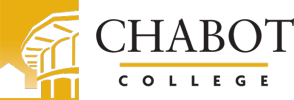
Social Justice Studies, Gender Studies
This program map from the 2024-2025 catalog year represents one possible pathway to complete this program. Your pathway may vary depending on your transfer plans and also previous college credit, including AP Test scores, concurrent enrollment courses and high school articulated courses.
I'm ready to get started. What do I do next?
- Review this program map to get an overview of the required courses
- Meet with a counselor to develop your customized student education plan www.chabotcollege.edu/counseling
- Use DegreeWorks, an online student education planning tool, to track your progress toward graduation www.chabotcollege.edu / admissions / degreeworks
The AA-T in Social Justice Studies: Gender Studies is designed for prospective California State University (CSU) transfer students who are preparing for careers in Women and Gender Studies and related fields. Completion of the Social Justice Studies: Gender Studies Transfer degree will provide a streamlined pathway for transfer to a CSU campus with a Women and Gender Studies or similar major.
Examples of CSU majors include American Studies, Gender Studies, Liberal Studies w/ option in Interdisciplinary Studies in Culture & Society, Sociology - Concentration in Race, Class, and Gender, Sociology with Inequalities and Diversity Option, Women, Gender, and Sexuality Studies, and Women's Studies.
Students should consult with a counselor to determine whether or not this degree is the best option for their transfer goals. GE requirements should be selected carefully based on the intended transfer institution; please see a counselor for details if you are pursuing transfer to the UC system.
What can I do with this major?
A degree in Gender Studies can lead towards any of the following career pathways, including:
- Education
- Law
- Social Work
- Immigrant Rights
- Civil Rights
- Journalism
- Public Health
- Community and Union Organizing
- Non-profit/social justice work
- Government
- Public Policy
- Community Development/Urban Planning
- International Relations.
Learning and Career Pathway
- Social Sciences, Humanities & Education
Icon Key
Semester 1
SOCI 7 or ES 7 (Choose one)
English 1- Critical Reading and Composition
Math Course for General Education: see a counselor to choose the appropriate course. PSY 5 is recommended and also counts towards the major under Area 4.
Semester 2
SOCI
3
Introduction to Race and Ethnicity
Options Course #1
General Education Course- see a counselor to choose the appropriate general education pattern and general ed course option for this term.
General Education Course- see a counselor to choose the appropriate general education pattern and general ed course option for this term.
General Education Course- see a counselor to choose the appropriate general education pattern and general ed course option for this term.
Semester 3
General Education Course- see a counselor to choose the appropriate general education pattern and general ed course option for this term.
Options Course #2
General Education Course- see a counselor to choose the appropriate general education pattern and general ed course option for this term.
General Education Course- see a counselor to choose the appropriate general education pattern and general ed course option for this term.
General Education Course- see a counselor to choose the appropriate general education pattern and general ed course option for this term.
Semester 4
General Education Course- see a counselor to choose the appropriate general education pattern and general ed course option for this term.
Options Course #3
General Education Course- see a counselor to choose the appropriate general education pattern and general ed course option for this term.
General Education Course- see a counselor to choose the appropriate general education pattern and general ed course option for this term.
General Education Course- see a counselor to choose the appropriate general education pattern and general ed course option for this term.
Options Courses
Electives: Select three courses from at least two of the following areas (only one course from Area 4 may be used)